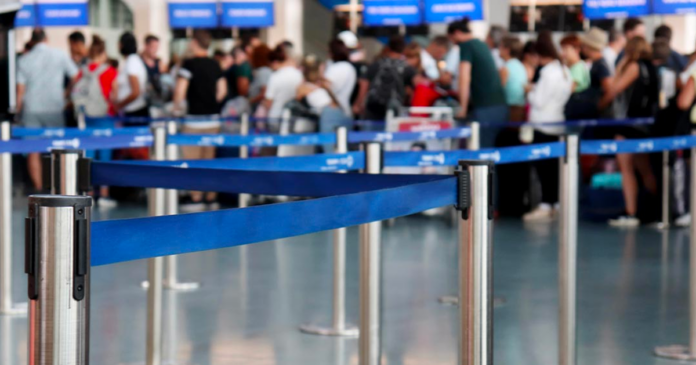Canadians could soon find themselves having trouble crossing the border or boarding a flight as border workers prepare for a national strike.
Canada’s border workers have voted overwhelmingly in favour of a strike mandate if the demands of their union are not met by the federal government.
According to the Public Service Alliance of Canada, the union which represents the border workers said that its members have been without an updated collective agreement for two years.
PSAC members include intelligence and trade officers as well as inland enforcement and investigators at all land and marine borders.
Officers at airports and other commercial points of entry are represented by PSAC as well, which says that negotiations are at an impasse.
Intelligence and trade officers as well as inland enforcement and investigators are also represented by the PSAC.
Border workers voted 96% in favour of a strike mandate which their union said may present “significant disruptions” to the distribution of goods and services as well as people trying to get through Canadian ports of entry.
Mediation sessions between the two parties are slated to begin on June 3, meaning a strike action could come as early as next month, just as the tourist season between Canada and the U.S. begins to pick up momentum.
However, basic services are still obligated to remain ongoing as many border employees are considered essential workers.
A brief border strike in 2021 led to long lines of transport trucks and passenger vehicles stuck along the Canada-U.S. border, as well as at airports.
The Canada Border Services Agency ultimately reached a deal with the Trudeau government after a 36-hour negotiation.
Now, the PSAC is saying it wants “fair” wages that are akin to what other law enforcement employees are given, as well as an “equitable retirement regime.”
“When you look at the RCMP, after 25 years, they have the option to retire,” spokesperson for the Customs and Immigration Union, a subsidiary of PSAC Pierre St-Jacques, told CTV News.
“CBSA does not have that,” he added. “These are difficult jobs. People need to maintain their training. As people get older, sometimes this gets more difficult.”
Additionally, the union is demanding some remote work options.
“Taking job action is always a last resort, but this strong strike mandate underscores that our members are prepared to do what it takes to secure a fair contract,” said Chris Aylward, PSAC National President in a press release.
“Unless they want a repeat of 2021, Treasury Board and CBSA must be prepared to come to the table with a fair offer that addresses our key issues.”
The Trudeau government responded to news of the strike mandate by saying it was ready to return to the bargaining table “at any time” vowing to do “everything possible to reach a responsible and competitive agreement.”
According to the government, 80% of all public service agreements have been renewed and when it comes to the PSAC, “if the union is ready to negotiate in good faith, we can do the same.”





















